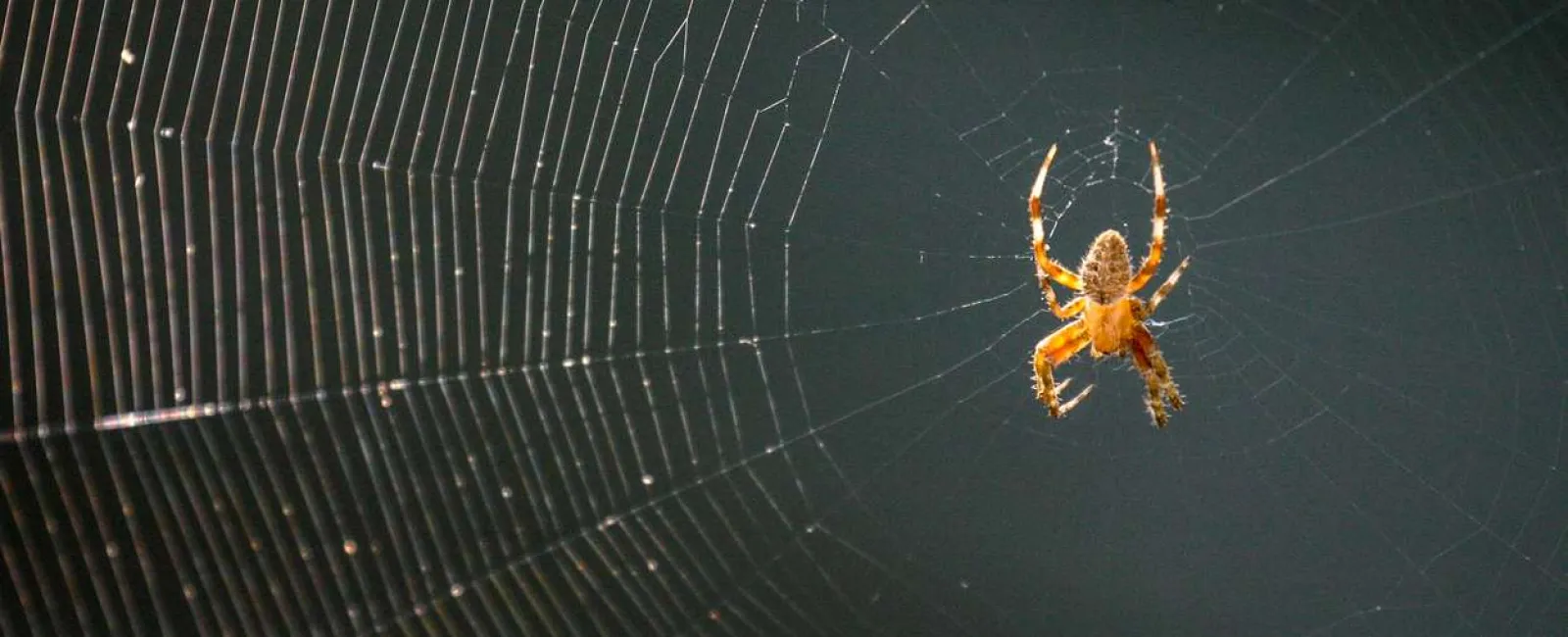If you're an avid gardener, you're probably used to the presence of eight-legged little monstrosities hanging around your tomatoes or flowers. Spiders are among the most common garden variety pests to be found in, well, gardens. But how do you know whether your spider neighbors are friends or foes? And more importantly, when do you need to call a true pest control professional to help serve an eviction notice?
Let's look at some of the most common garden spiders you can find and how to know whether you can leave these web slingers alone or call for backup.
The garden spider
Before we talk about some of the other types of spiders you might encounter outside, let's first look at the garden spider, also known as the orb weaver spider. These spiders create orb-shaped webs that are fairly strong. In these webs, the spider traps insects for food. Garden spiders are extremely sensitive to vibrations along the web and to touch in general.
Orb weaver spiders are big, but they don't have much bite—at least toward humans. They're not venomous to humans and can be beneficial for your garden as they munch on other types of pests. If you see the black and yellow banded body of an orb weaver spider in and around your garden, leave it alone.
What about other types of spiders?
Garden spiders aren't the only arachnids you'll encounter outside. Wolf spiders don't spin webs, preferring instead to pounce on their prey. Flower crab spiders can hunt their prey in flowers. Nursery web spiders can be found in Ohio and can bite if you get too close to their egg sacs.
While you don't have to worry about many species of spiders, there are a few to be mindful of. In addition to garden spiders in Utah, black widow spiders are often found in Utah and Ohio, where they like to hang out and hide in webs in woodpiles. Their bite is extremely venomous and harmful to people and pets. A brown recluse—identified by its unique violin-shaped markings—that makes its way into your home should be given a wide berth since it's among the most dangerous type of spider that can bite you.
What should I do if I see spiders in and around my garden or home?
If you've noticed one of the spiders we've identified as "not that dangerous," the best course of action is to leave them alone unless you like bugs chewing on your garden or crawling around your house. In that case, feel free to smash them. But many spiders prove beneficial to the ecosystem of any garden and help keep your home pest-free.
The exceptions to this rule, of course, are the unwelcome sorts like black widows and brown recluses. If you see either of these spiders, give your local pest professionals at Greenix a call. We can help safely remove or eliminate venomous spiders and help protect the safety of your home.
Contact Greenix with your spider questions
If you have any doubt at all about what kind of spider is skulking around your leafy greens or mulch beds, don't panic. Contact the friendly pest service pros at Greenix to schedule an inspection, and we'll help identify the new eight-legged residents in your garden or yard. Our service professionals will answer your spider questions and put your mind at ease with pest control solutions that are tailored to your unique needs.

